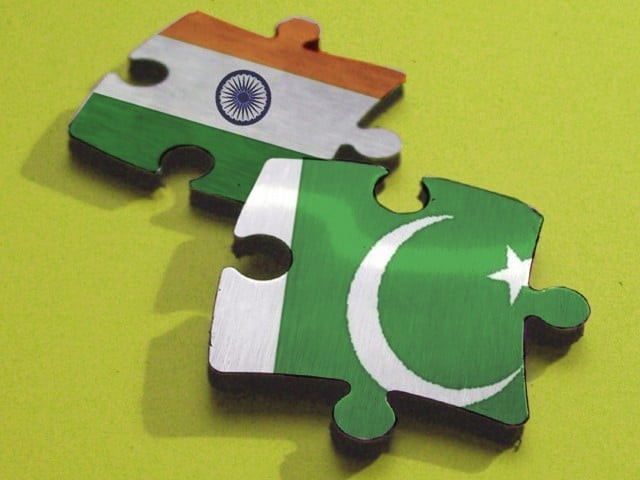Bottlenecks and way forward: ‘Indians have more misperceptions about Pakistan than vice versa’
People-to-people contact is thriving between Pakistan and India, says Hashwani.

Prof. Pande, who participated in the session through Skype, said that terrorism, Kashmir, water, trade and Siachen were the core issues between the two neighbours, adding that the issue of terrorism should be solved before any composite dialogue. PHOTO: FILE
Tensions might have flared up at the border between Pakistan and India, but dialogue is the way forward to solve issues, said cross-border experts at a seminar on Wednesday.
The experts, including Delhi Jawaharlal Nehru University (JNU) Prof. Dr Savita Pande, Aman ki Asha editor Beena Sarwar, Pakistan-India CEOs Business president Amin Hashwani, fiction writer Amar Jaleel and others, discussed issues ranging from budgetary allocations for defence to terrorism and from water issues to the thrashing of art paintings at the seminar ‘India-Pakistan Relations: Bottlenecks and Way Forward’ at Szabist.
“Nations operate on economic interests rather than ideological interests,” said Hashwani. Highlighting the issue of nationalism, Hashwani said that it unites as well as divides people across borders, adding that Indians have more misplaced perceptions about Pakistan than vice versa.
He elaborated his point by saying that Pakistanis have seen the Indian perspective through various means - television, movies etc - and they have a one dimensional view of Pakistan. “Pakistan has a multidimensional view of India because we are more aware about their culture.”

Hashwani was of the view that despite three wars, people-to-people contact was thriving between Pakistan and India. Unlike other countries, such as Palestine and Israel, the people of Pakistan and India can become the best of friends, he said. On many other levels, however, we have failed. “We have to get our priorities right. We need to integrate with the regional trading blocs because even during war times, nations continue to trade.”
Prof. Pande, who participated in the session through Skype, said that terrorism, Kashmir, water, trade and Siachen were the core issues between the two neighbours, adding that the issue of terrorism should be solved before any composite dialogue.
Commenting on the prime minister’s initiative of extending a hand of friendship, Pande said that unfortunately the gesture was not recieved in the same manner in India.
She said that there were serious concerns about Pakistan-China relationship in the strategic areas. “What will happen after the Americans leave Afghanistan in 2014 is being closely watched. America will not fight your fight. It will shake hand with someone else,” she remarked.
Prof Pande emphasised that special focus should be given to curb terrorism as other issues could be sorted out along the way. “States tend to blame others for their problems for various reasons,” she said while talking about the tension at the border.
“Rulers meet, eat and discuss issues but it’s the ordinary citizens who can’t do the same,” said Jaleel. He humorously asked the audience if they were discussing a bad relationship with a wife or good relationship with a girlfriend. “Whatever it is, the relationships have been very bad for the last 66 years,” he lamented.
Jaleel said that history was not recorded in audio and video tapes and, hence, it can’t be edited, therefore, the sense of whatever has been taking place must be cultivated in the generation for them to move forward. “How long can you hate your next-door neighbour?”
Published in The Express Tribune, August 29th, 2013.



















COMMENTS
Comments are moderated and generally will be posted if they are on-topic and not abusive.
For more information, please see our Comments FAQ